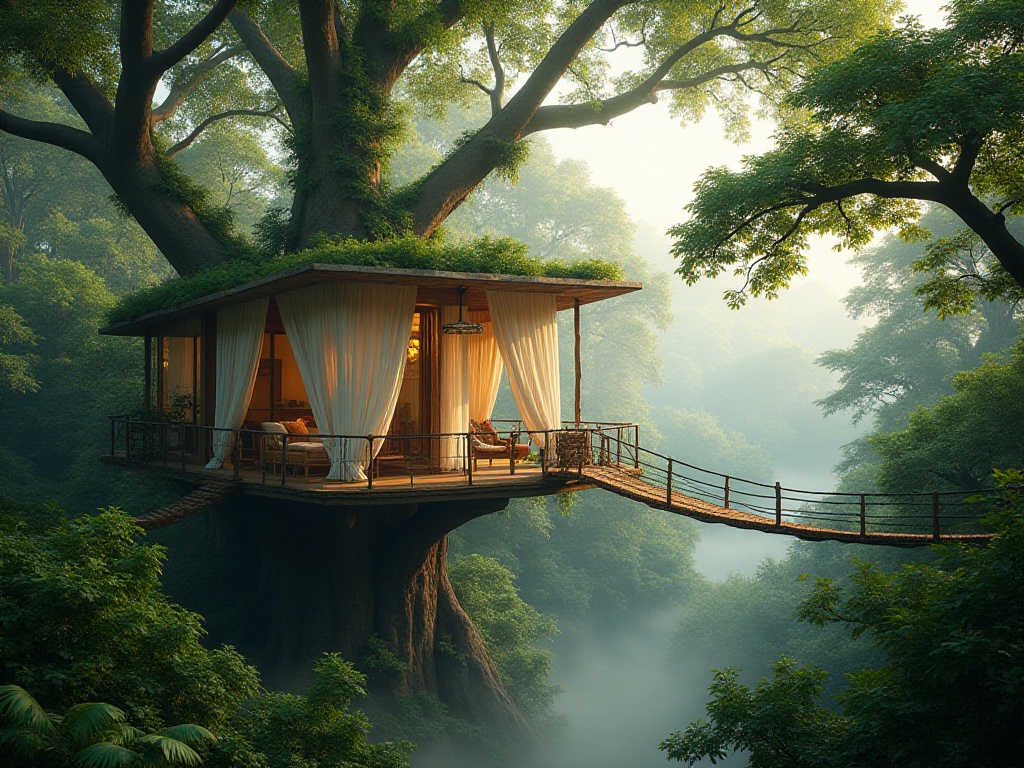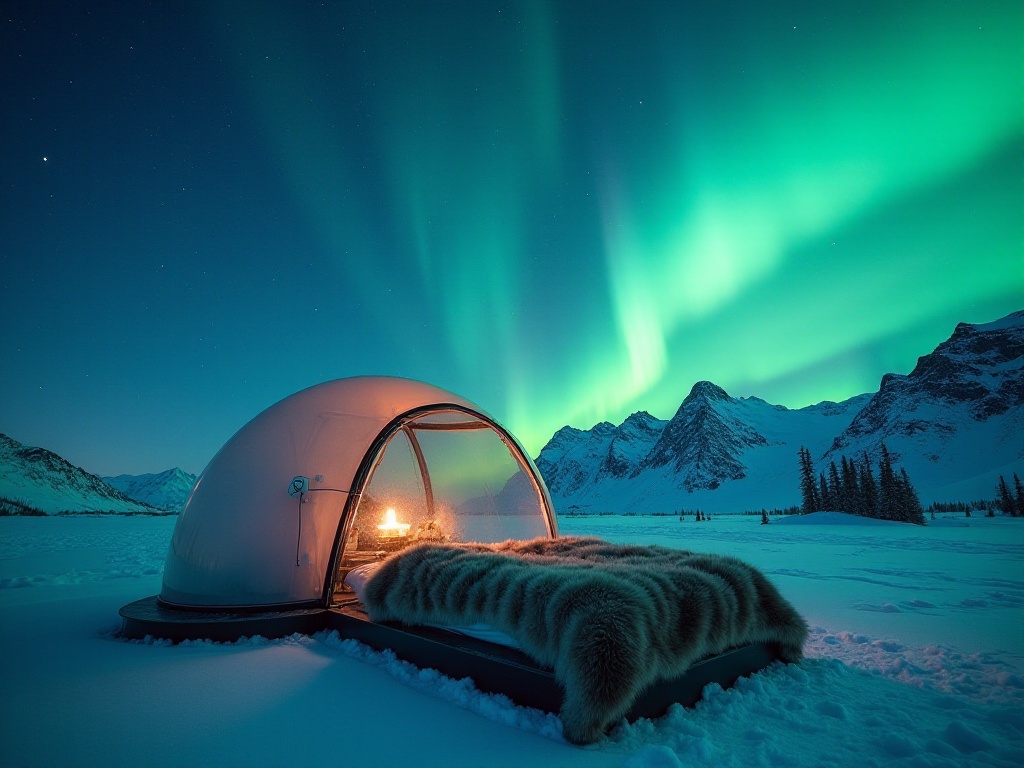
Origins
Have you ever struggled with choosing accommodation? I remember when I first planned my European trip alone, the dazzling array of accommodation options was truly overwhelming. After years of travel experience and in-depth research, I'd like to share my thorough thoughts on choosing travel accommodation.
Hotels
When it comes to travel accommodation, many people think of hotels first. But did you know that the modern hotel industry has developed various specialized models, each with its unique advantages and characteristics?
Traditional hotels are the most common form of accommodation. According to STR Global data, the global hotel industry market size reached $571 billion in 2023. Behind this enormous figure lies diverse market segmentation. From luxury Ritz-Carlton to budget chains like Home Inn, each brand strives to provide the most suitable service for specific customer groups.
In recent years, boutique hotels have emerged strongly. Statistics show that the global boutique hotel market is growing at 12% annually, expected to reach $17 billion by 2025. Why such growth? I believe this is closely related to modern travelers' pursuit of personalized experiences.
For example, last year I stayed at a Japanese-style boutique hotel in Kyoto with only 8 rooms, each carefully designed to perfectly blend traditional tatami with modern minimalist style. From the kimono-clad staff at the entrance to the matcha tea set in the room, every detail was infused with Japanese cultural essence. This kind of experience is hard to find in chain hotels.
While motels have declined in some regions, they still play an important role in areas where road trips are popular. U.S. statistics show that over 48% of road trip travelers still chose to stay in motels in 2023. This indicates that convenience and value for money remain important factors for travelers in specific travel scenarios.
Extended Stay
As travel styles diversify, extended-stay accommodations are becoming increasingly popular. According to global accommodation statistics, extended-stay facilities had 15% higher occupancy rates than traditional hotels in 2023. Why is this?
Apartment hotels provide a good answer. Imagine if you need to stay in a city for over two weeks, would you choose to eat at the hotel restaurant every day or occasionally cook for yourself? Surveys show that over 70% of long-term travelers prefer accommodations with kitchens.
During my business trip to Singapore, I chose an apartment hotel. The 85-square-meter room came with a fully equipped kitchen, allowing me to cook local Singaporean seafood. More importantly, the washing machine meant I didn't need to pack too many clothes, and the office area in the living room made working more comfortable. This "home-like" experience is something traditional hotels can't match.
Lodges offer us another option. Especially in natural scenic areas, lodges often provide unique experiences. According to booking.com data, over 35% of travelers chose to stay in lodges in scenic areas in 2023, an 8 percentage point increase from the previous year.
The booming house rental market is also worth noting. Airbnb data shows that the global house rental market reached $113 billion in 2023, with an expected annual growth rate of 15% over the next five years. This growth reflects travelers' pursuit of more personalized, localized accommodation experiences.
Cultural Aspects
If the aforementioned accommodation types focus more on functionality, cultural experience accommodations elevate travel to a new level.
Bed and Breakfast (B&B) is a good example. In Europe, B&B history can be traced back to the Middle Ages. Modern B&Bs not only provide accommodation but more importantly offer opportunities for direct contact with local residents. Statistics show that 82% of B&B travelers say this type of accommodation helped them better understand local culture.
I once stayed at a farmhouse B&B in Tuscany, where every morning I could enjoy the landlady's homemade Italian bread and fresh olive oil. In the evenings, the host would invite guests to taste homemade Chianti wine and discuss Tuscan history and culture. This deep cultural experience is something chain hotels cannot provide.
Shared accommodation takes cultural experiences to an even deeper level. According to Homestay.com data, 91% of travelers who chose shared accommodation in 2023 reported that this type of stay significantly enhanced their travel experience. Particularly for language learning, shared accommodation provides an immersive language environment.
House sitting as an alternative accommodation option is also gaining popularity. TrustedHousesitters platform data shows that global house sitting opportunities increased by 45% in 2023. This "accommodation for care" model not only greatly reduces travel costs but also brings unique cultural experiences.
Economic Aspects
How to choose suitable accommodation on a limited budget? This question troubles many travelers, especially young people.
Youth hostels might be the most typical budget accommodation choice. According to Hostelworld data, global youth hostels achieved an average occupancy rate of 78% in 2023, with the most significant growth in Asia. This shows that even in today's improved economic conditions, youth hostels still have their unique market value.
Why are youth hostels so popular? Besides price factors, social attributes are an important reason. Surveys show that 67% of backpackers choose youth hostels hoping to meet travelers from around the world. I met my current good friends at a youth hostel in Brisbane, Australia, and we planned a Great Barrier Reef trip together, sharing car rental costs, making my journey more colorful.
Campus accommodation is another option worth considering. Many universities open student dormitories to tourists during holidays, usually at prices 30% lower than surrounding hotels. According to UK Higher Education Statistics Agency data, over 500,000 tourists chose campus accommodation in summer 2023, and this number continues to grow.
Off-campus accommodation provides us with more possibilities. Taking London as an example, students and short-term visitors choosing off-campus accommodation can save 30-50% on accommodation costs. However, this option might require more time for screening and comparison.
Reflection
Through the above analysis, we can see that modern travel accommodation has far exceeded the simple concept of "having a place to sleep." It involves budget control, cultural experiences, social needs, and many other dimensions. So, how to choose the most suitable accommodation for your journey?
I suggest considering the following aspects:
First is travel purpose. Is it a business trip or leisure travel? Short-term stay or long-term residence? Different purposes determine different needs.
Second is budget control. Accommodation usually takes up a large portion of the travel budget, so how to get the best experience within budget? This requires us to weigh various options.
Finally, experience preference. Do you prefer comfortable and convenient standardized service, or unique cultural experiences? This answer varies from person to person.
What other important factors do you consider when choosing travel accommodation? Feel free to share your thoughts and experiences in the comments.
Next
Budget-Friendly Hostels in Southeast Asia: A Solo Traveler's Guide
Ah, Southeast Asia! The land of vibrant street markets, ancient temples, and pristine beaches. But for the solo traveler, it's so much more – it's a playground of self-discovery, cultural immersion, and unforgettable connections. And at the heart of this solo adventure? Hostels, my friends. These budget-friendly havens are the unsung heroes of the backpacker trail, offering not just a place to rest your head, but a launchpad for epic journeys.
From Hostels to Luxury Hotels: A Backpacker's Global Accommodation Guide
A comprehensive guide to accommodation options, covering traditional hotels, boutique hotels, B&Bs, self-catering units, as well as specialty lodging like mountain cabins, resorts, and alternative options including home exchange and work exchange programs
The Great Escape: Hotels Bask in Summer's Radiant Glow
In a world once silenced by the echoes of empty lobbies and vacant rooms, a new symphony of rolling luggage and excited chatter is rising. The hotel industry, long battered by the storm of a global pandemic, is finally seeing the sun peek through the clouds. As we stand on the precipice of a travel renaissance, local hotels are witnessing a surge in occupancy rates that's nothing short of miraculous.
Next
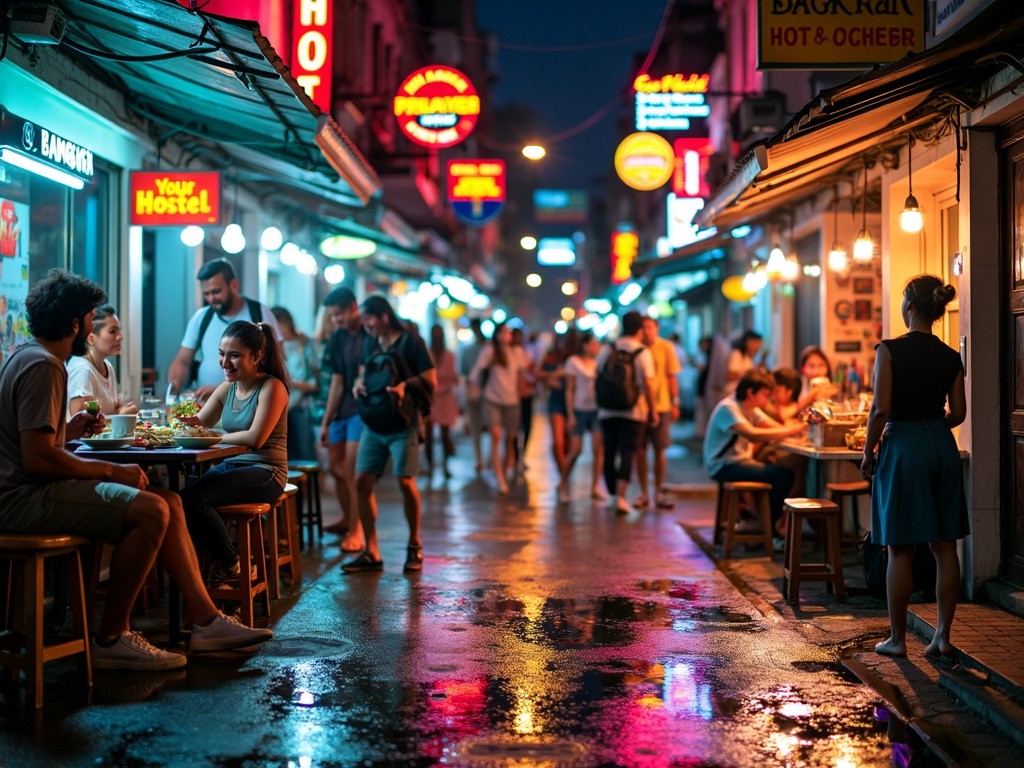
Budget-Friendly Hostels in Southeast Asia: A Solo Traveler's Guide
Ah, Southeast Asia! The land of vibrant street markets, ancient temples, and pristine beaches. But for the solo traveler, it's so much more – it's a playground of self-discovery, cultural immersion, and unforgettable connections. And at the heart of this solo adventure? Hostels, my friends. These budget-friendly havens are the unsung heroes of the backpacker trail, offering not just a place to rest your head, but a launchpad for epic journeys.
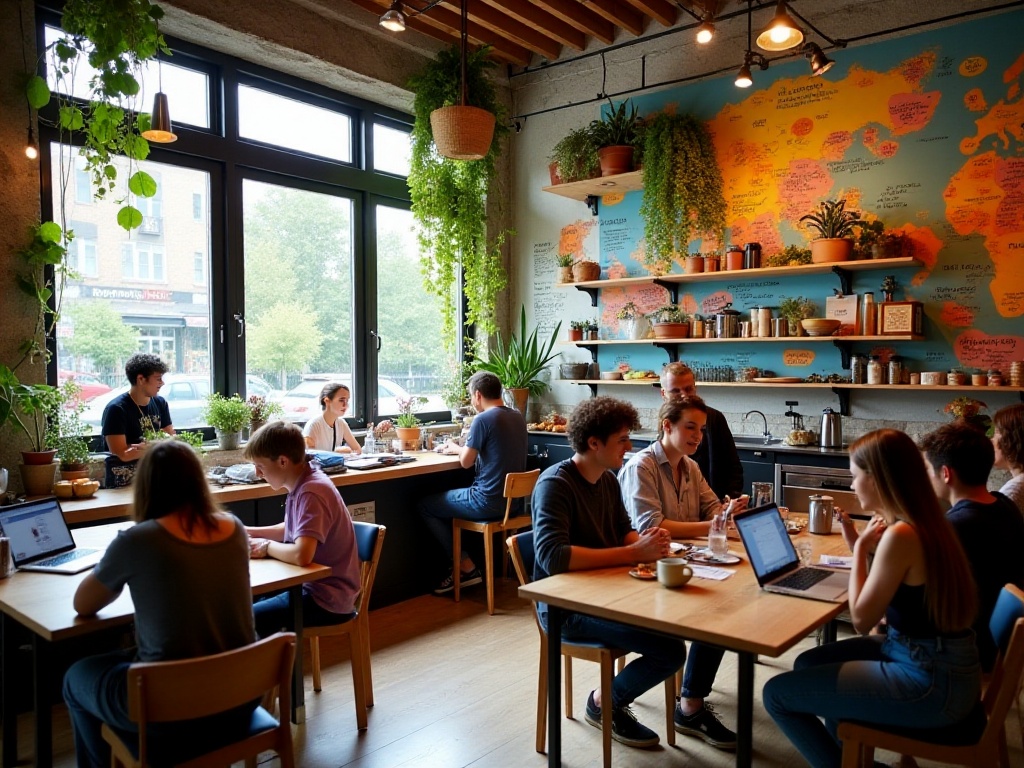
From Hostels to Luxury Hotels: A Backpacker's Global Accommodation Guide
A comprehensive guide to accommodation options, covering traditional hotels, boutique hotels, B&Bs, self-catering units, as well as specialty lodging like mountain cabins, resorts, and alternative options including home exchange and work exchange programs
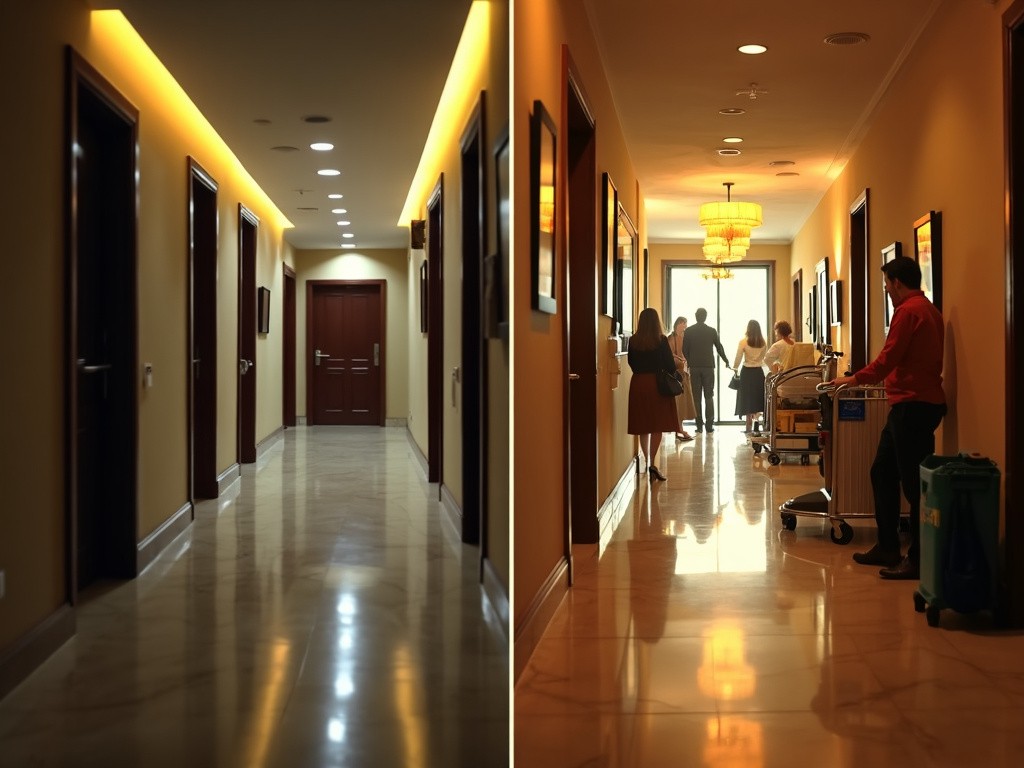
The Great Escape: Hotels Bask in Summer's Radiant Glow
In a world once silenced by the echoes of empty lobbies and vacant rooms, a new symphony of rolling luggage and excited chatter is rising. The hotel industry, long battered by the storm of a global pandemic, is finally seeing the sun peek through the clouds. As we stand on the precipice of a travel renaissance, local hotels are witnessing a surge in occupancy rates that's nothing short of miraculous.

